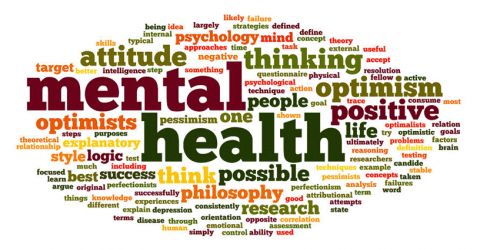What is Trauma-Focused CBT?

Cognitive Behavioural Therapy (CBT) is a therapy type that is discussed a lot in terms of treatment options for a range of mental health conditions, such as phobias, eating disorders, panic disorder, and Post-traumatic Stress Disorder (PTSD). The results from having CBT can be very effective, and while CBT aims to help a person manage their problems by way of changing how they think and act, Trauma-Focused CBT is slightly different, but uses the same premise. In this blog post I will be discussing what it is, how it is carried out, and what it is used for, as well as how it may differ from other talking therapies.
Although it can be used in different areas of mental health, PTSD is a common condition that Trauma-Focused CBT is used to help with. The condition can lead a person to have problems sleeping, have recurring thoughts about the traumatic experience they went through, experiencing emotional numbness, have problems concentrating, and have severe emotional and physical responses to something that triggers a memory of the traumatic experience they have been through. Trauma-Focused CBT uses a range of psychological techniques to help a person come to terms with a traumatic event they have experienced. Confronting what has happened can be carried out by the person thinking about the experience in detail, and then the therapist helps the person cope with the feelings evoked by this, such as distress, while also identifying any misrepresentations or unhelpful thoughts they may have about the traumatic experience. These may include a person feeling that what they have experienced will happen again or that they are to blame for it. The therapist would then aim to help the person gain control of the fear and distress they feel by changing how they think about the event.
Sessions of Trauma-Focused CBT usually run for 60-90 minutes, and a person would usually have 8-12 weekly sessions with the same trained therapist. The sessions can help someone to process any emotions they have that relate to the trauma, such as guilt or shame, help them to deal with avoidance, and to help them manage their relationships. As well as these, the sessions can include information about how handle hyperarousal, such as anger, and how to manage flashbacks, among other things. These sessions can take place in many different settings, such as outpatient mental health clinics, hospitals, schools, and at a person’s home. As well as a person having these therapy sessions, where applicable they may be encouraged to gradually carry out any activities they have avoided because of what they have experienced. An example of this could be driving a car after having had a car accident.
When looking at talking therapies, CBT is a common type that can be used as a way of changing the way a person thinks about something. This is due to it being based on the perception that our thoughts, actions, feelings and physical sensations are all interconnected, and that negative feelings and thoughts can trap us in a vicious cycle. Trauma-Focused CBT seems to differ in that it focuses on trauma being the cause of a person exhibiting the thoughts, feelings, behaviours etc. they do. However, CBT in general may be an effective therapy, but it should be highlighted that it only deals with the current problems a person is experiencing, such as current PTSD symptoms, and it doesn’t focus on the issues they may have from their past which may be a factor in how they are feeling in the present. For more information on CBT and Trauma-Focused CBT, please look in the references list below.
Sarah Keeping
Follow Sarah on twitter at @keepingapproach
Image credit – https://pixabay.com/users/oliverkepka-541492/
Follow E-therapy on social media:
Facebook – @Etherapy
Instagram – @EtherapyToday
Twitter – @EtherapyToday
References
https://www.nhs.uk/conditions/cognitive-behavioural-therapy-cbt/
https://www.psychologytoday.com/gb/therapy-types/trauma-focused-cognitive-behavior-therapy


